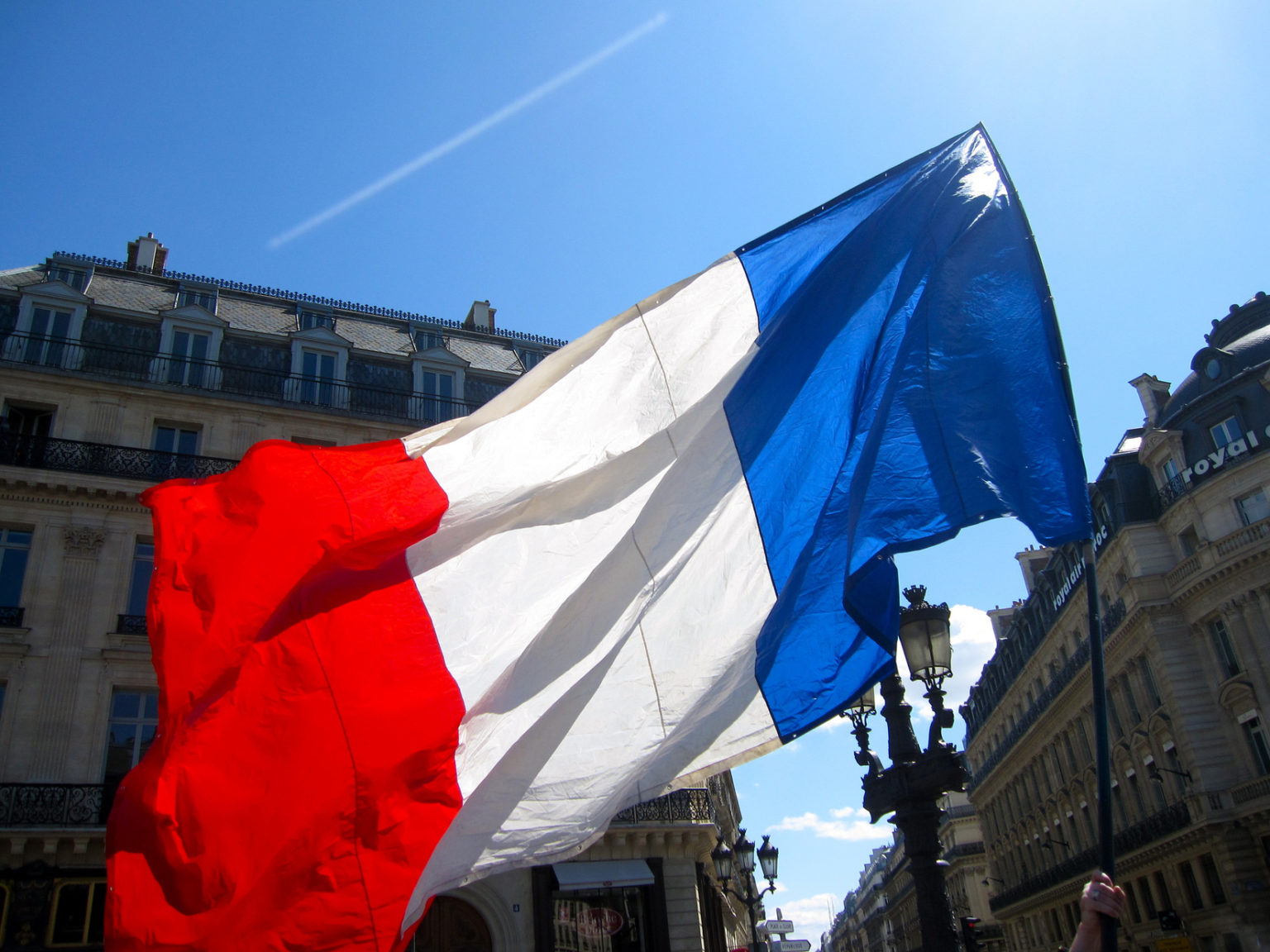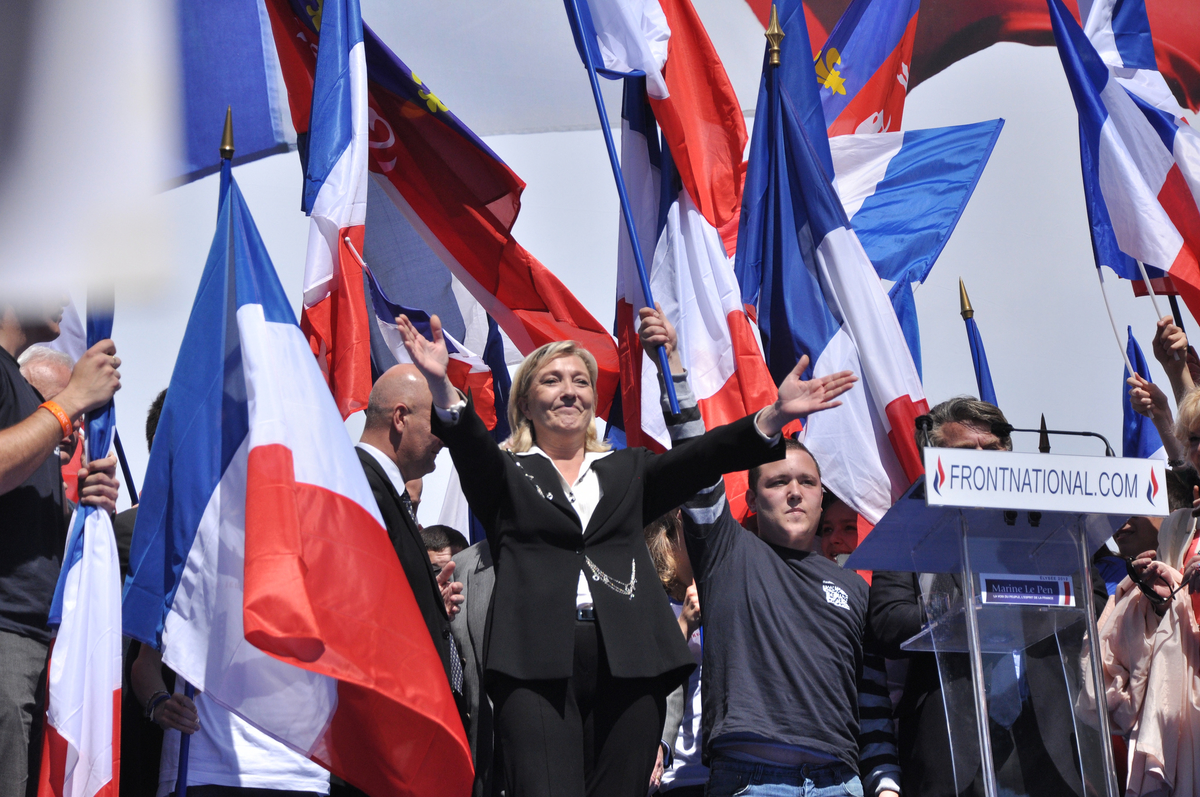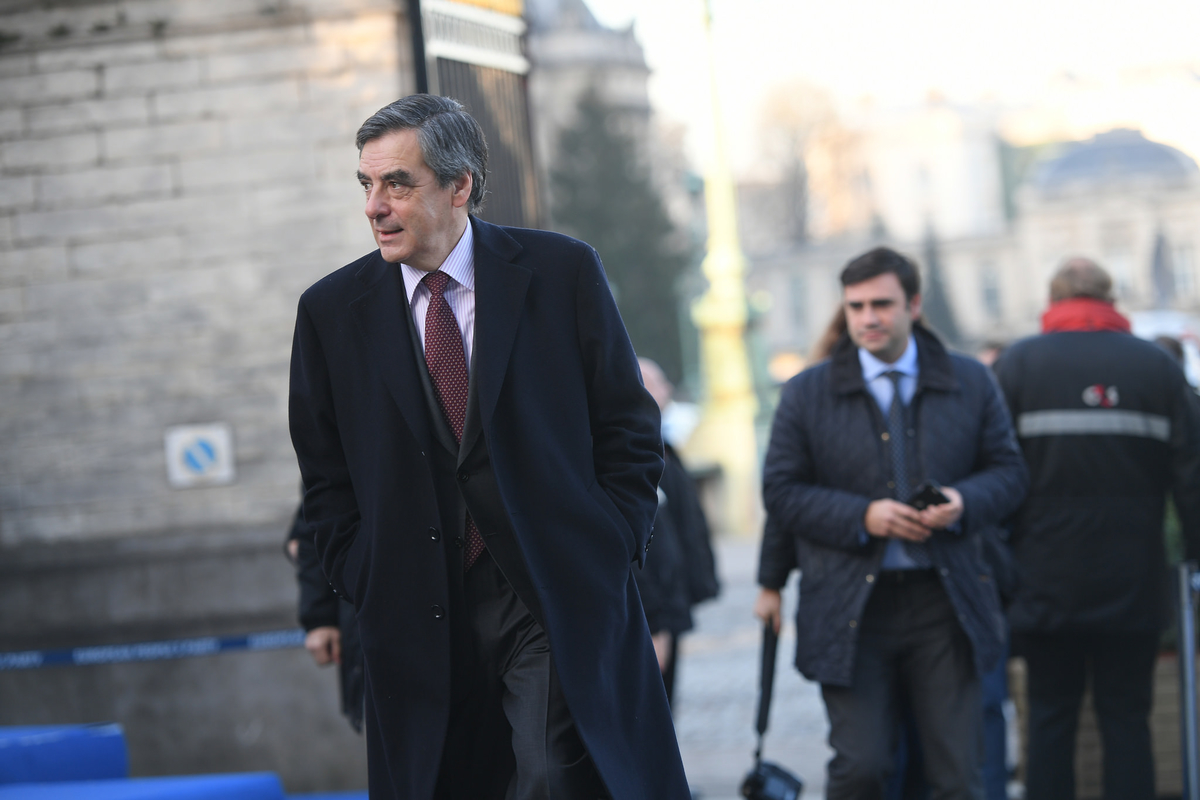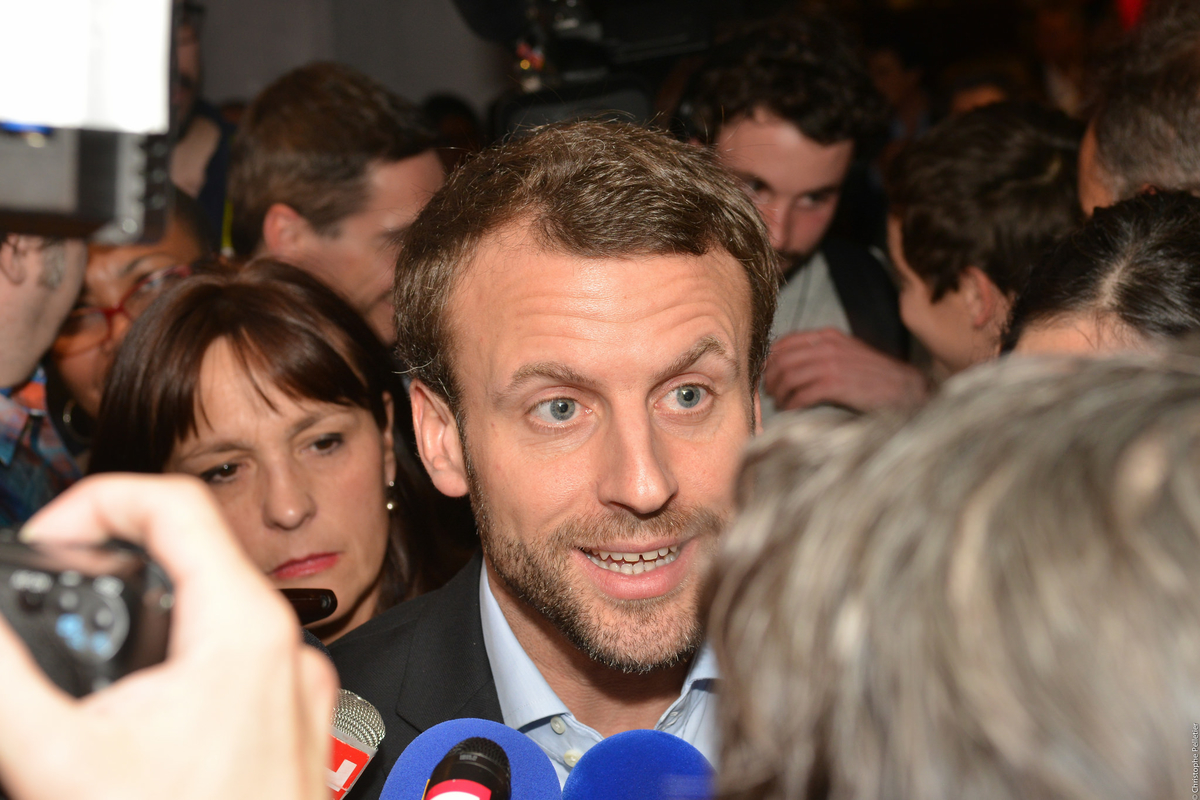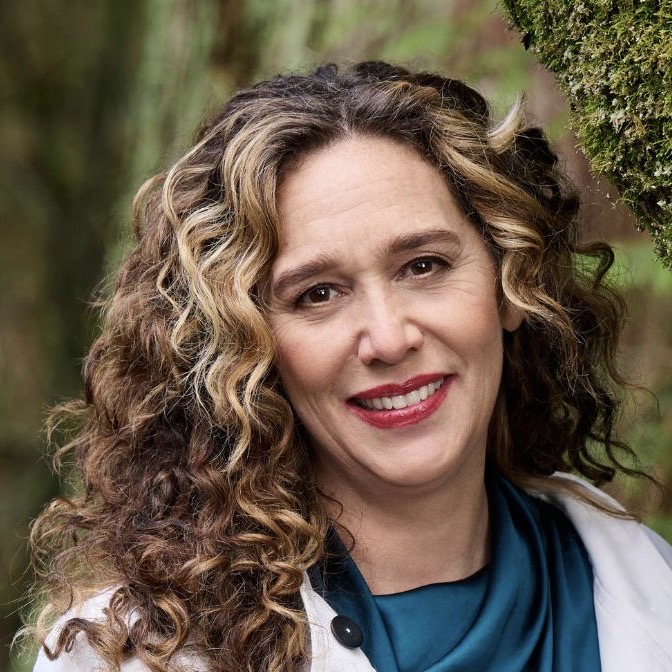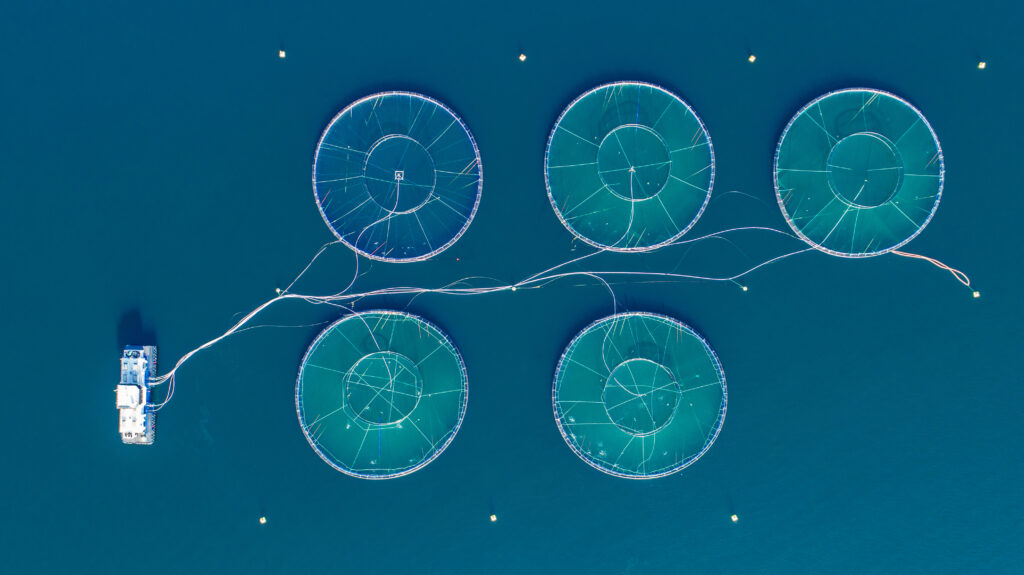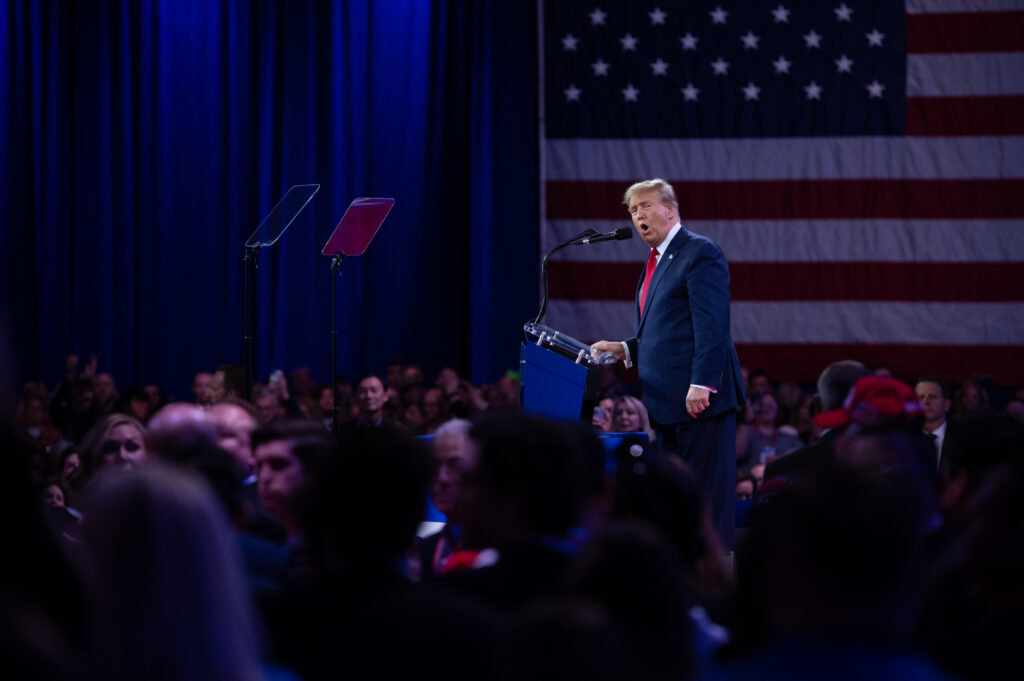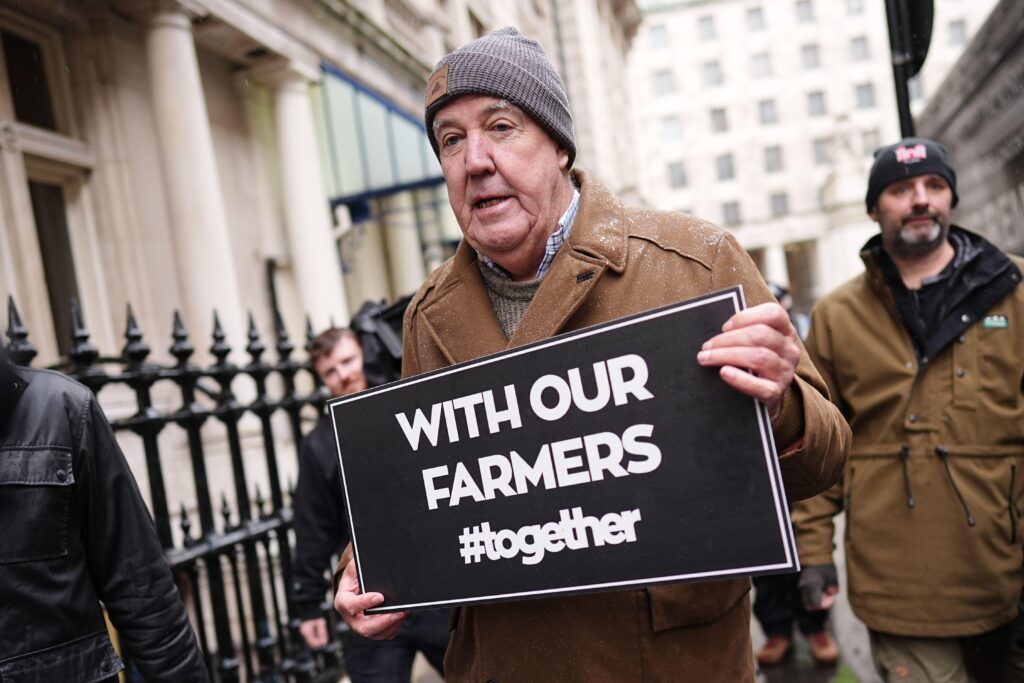France, the birthplace of the Paris Agreement, is a week away from the first round of its presidential election on April 23. Throughout the campaign debates on the environment have often been side-lined, with the three leading candidates showing no sign of real climate leadership.
The backdrop to the election campaign has been full of “fake news”, Brexit and Donald Trump. It has also been mired in scandals over corruption claims and growing concerns of Russian interference.
Many in France are still deciding who to vote for in one of the most unpredictable elections yet. If no candidate wins a majority on April 23, a second election round featuring the top two candidates will take place on May 7.
Far-right Marine Le Pen’s rise through the polls shows the populist pulse of Brexit and Trump’s election continues to resonate on the continent.
But Le Pen’s efforts to give the Front National (FN) a new, greener image is tainted by the party’s ongoing magnet effect with alt-right groups which reject climate science.
Conservative Francois Fillon denies any wrongdoing in a never-ending corruption scandal. Meanwhile his friendship with the head of oil giant Total raises questions over who will really benefit from his environmental policies.
The fragmentation of the political scene has left the door open for frontrunner Emmanuel Macron. Yet, his support for gold mines in French Guiana, in South America, has raised concerns over the protection of the territory’s unique biodiversity.
With seven days until the polls open, DeSmog UK looks at how alternative facts and the three main candidates’ links with powerful groups and corporations may have shaped their environmental policies.
DeSmog UK’s analysis shows:
- Le Pen has developed links with alt-right news website Breitbart
- A Front National elected representative has links with major energy and chemical company Air Liquide
- Heads of multinationals Airbus and Total maintain a friendly relationship with Fillon
- Fillon has personal ties with Russia’s President Vladimir Putin
- Frontrunner Macron’s support for gold mine exploitation on the edge of France’s largest biological reserve in French Guiana
- Former Minister of the Economy has a history of issuing oil and gas permits
Le Pen: Environment and French Identity
Over the last few years, the FN has strived to green its party image to widen its appeal, making the environment an issue of national identity.
But taking a closer look to her new green image, Le Pen’s sceptic views are not far behind her. In 2012, in an interview for Terraeco, Le Pen declared: “I am not sure human activities are the main source behind the [climate change] phenomenon … The world has seen changes in the climate that had nothing to do with human activity.”
Marine Le Pen. Photo: Blandine Le Cain via Flickr | CC 2.0
Le Pen’s father, Jean-Marie Le Pen, founder of the Front National party, is himself a known climate denier.
In 2010, he slammed the environment as the new religion of well-off urban classes and accused climate science of being “inaccurate and alarmist” during a conference called “Global Warming: myth or reality”.
Le Pen has tried to move the party’s image away from her father’s denial of the Holocaust, anti-Semitic and climate sceptic views through a process known in France as “dediabolisation”, which means “casting out the devil”.
But in spite of the creation of a new far-right movement designed to reframe the party’s environmental policies, and Le Pen declaring during a 2012 interview that she is “greener than the Green Party”, the FN leader has never explicitly accepted the extent of human agency in climate change.
In January, she said she “believed human activity does play a role, which extent I cannot measure, in climate change”. That is as much as she has said.
In recent campaigns, Le Pen dropped her surname on posters to be known only as Marine. And yet, the alt-right movements which gravitate around the FN are a stark reminder of the party’s roots.
“Dediabolisation” and Alt-Right Media
Last summer, alt-right news platform Breitbart announced its intention to launch in France in time for the presidential election. (So far, though, there are no signs of a French Breitbart.)
Breitbart promotes climate sceptic views questioning the extent of human agency in climate change and opposing environmental regulations as a barrier to growth. In 2015, it ran a story saying abundant carbon dioxide was good for the environment and beneficial for humanity. And just last week it ran an article arguing the Great Barrier Reef isn’t in danger from mass coral bleaching.
The website has shown plenty of support for Le Pen ahead of the election. A quick search on their website give 158,000 results for Le Pen compared with 442 for right-wing Fillon and 340 for Macron.
Former CEO of Breitbart and Donald Trump’s chief strategist Steve Bannon told Radio Londres that France was “the place to be” and that Le Pen’s niece, Marion Maréchal-Le Pen, was its “rising star”.
In a tweet following Trump’s election, Maréchal-Le Pen said she accepted Bannon’s invitation to work with him to set-up Breitbart in France.
I answer yes to the invitation of Stephen Bannon, CEO of @realDonaldTrump presidential campaign, to work together. https://t.co/tPSoY5A2vS
— Marion Le Pen (@Marion_M_Le_Pen) November 12, 2016
At the end of February, Breitbart ran a story with the headline “Establishment admits Le Pen might just win presidential election”.
It read: “A Le Pen victory would continue the populist trend set by Brexit and the election of Donald J. Trump as US President last year, neither of which were forecast by insiders and industry pundits.”
Breitbart’s principal owner is the hedge fund billionaire Robert Mercer, who has pumped millions into organisations, which push climate science denial. The single biggest donor behind Donald Trump’s campaign, Mercer also has a connection with data analytics company Cambridge Analytica.
Cambridge Analytica, which has offered its services to Leave.Eu and backed the Trump campaign, carries out “election management strategies” for clients by profiling groups and individuals, including political beliefs and voting affiliations, and creating tailored content to boost the campaign’s message.
There is no evidence the company has brought its support to the FN, which publicly said it was in need of financing, but it is clear that Breitbart has been in contact with the party. DeSmog UK has received no answer from the FN to its questions on the issue.
France also has its own far-right platforms. Known as the “fachosèphre” or literally the “sphere of fascists”, these are promoting the FN’s views of the environment as an emblem of French identity.
The anti-Semitic and homophobic website Egalité et Réconciliation, was founded by activists with connections to the far-right Groupe Union Defense (GUD), known for its violent actions in the 1970s.
Although Le Pen is keen to disassociate the FN from extremist and violent movements such as the GUD, the party continues to draw in some of its members. As such, one of the FN’s main donors, who navigates in Le Pen’s close but unofficial circles, is Frederic Chatillon, a former member of the GUD.
The website re-posts articles from different sources. This includes one story slamming climate change scientists as “the sect of the end of the world” and another accusing climate change of being a pretext “to feed the globalisation machine”.
But more recently, the website has also been promoting the work and lifestyle of Nicolas Fabre, a former Parisian graphic designer, who left his urban lifestyle to start growing food using permaculture techniques in the south of France.
Fabre lives in complete autarky with the rest of the world and praises his lifestyle as anti-system and anti-globalisation.
In 2014, Le Pen launched a new movement within the FN called “New Ecology”. It promotes the idea of “environmental patriotism” and quickly became popular among some farming communities.
Opposing international treaties and advocating “short circuits” between local production and distribution, Le Pen has made her protectionist policies the heart of her environmental programme.
She is not interested in solving the global climate crisis. Instead, she wants to be a strong voice for rural France with a motto of “think local and act local”. Her environmental concerns stop at the French border.
Le Pen’s Propositions
Among Le Pen’s 144 campaign pledges, 12 points are dedicated to the environment under a section called “Sustainable France”, from which terms such as “biodiversity” and “air pollution” are absent.
Le Pen defends an energy transition based on the French renewable sector excluding wind farms, she previously described as “hideous” and on which she would impose a blanket ban.
She wants to “maintain, modernise and secure” France’s nuclear energy sector in opposition to President Francois Hollande’s plan to reduce nuclear energy from 75 per cent to 50 per cent of the energy mix by 2025.
Meanwhile, she wants to give a huge boost to the hydrogen industry – she specifically calls “clean energy” – through subsidies for research and development.
Four major French companies are currently leading research in hydrogen, including Air Liquide, Alstom, Engie and Total. It is also the case that an FN representative for the Isère area, Bruno Desies, was a former employee of Air Liquide, and worked to expand the company’s activities in Asia.
Le Pen backs a ban on shale gas exploitation until “satisfactory environmental, safety and health conditions” are met. France currently has a moratorium on shale gas exploration and exploitation using hydraulic fracking techniques, which it considered highly polluting.
She vows to make animal protection a national priority by forbidding animal killing without prior anaesthesia, directly targeting halal and kosher slaughter techniques.
Greenpeace France has accused the FN of having “restored the face of the project, but at its heart, it [FN] still relies on principles that have remained unchanged since the far-right party’s creation by Jean-Marie Le Pen”.
Fillon’s Friendship with Total
While Le Pen uses climate change to promote closed borders and protectionist measures, on the other side, the ultra-liberal and conservative candidate Fillon puts growth at home and abroad at the heart of his project for the environment.
Francois Fillon. Photo: European People’s Party via Flickr | CC 2.0
Speaking during the first TV debate, Fillon said he wanted to “reconcile economic growth and environmental protection”.
A staunch advocate of nuclear energy, Fillon wants to alleviate environmental regulations and encourage companies to carry out “responsible investments”.
Among those in Fillon’s close circle is President of Airbus’ board of directors, Denis Ranque, and oil giant Total’s Managing Director Patrick Pouyanné. It would seem the interests of France’s multinational corporations rank high on Fillon’s agenda.
A key element in his programme is the withdrawal of the “precautionary principle”, which favours public health and environmental protection over activities which could pose a risk to the environment. Such measure is likely to benefit people with vested interests in natural resources such as Pouyanné.
The head of Total since 2014, Pouyanné first had a career as a politician. In 1995, he was appointed technical advisor for the environment and industry and worked with Fillon, then Minister of Technology and Information, as his director of cabinet.
Last month, French newspaper Le Canard Enchaine revealed Fillon received $50,000 (£40,000) for acting as the intermediary between Russian President Vladimir Putin, Pouyanné and Lebanese billionaire and Fouad Makhzoumi, the head of Future Pipe Industries, which provides infrastructure for the oil and gas industry.
Fillon has denied having been involved in any deal either with Total or with Russia.
But Fillon’s links to the Kremlin have come under the spotlight after France’s polling commission issued a warning over a news report published by Russian news agency Sputnik.
The story, published at the end of March, falsely claimed that Fillon was leading in the polls, contradicting all other mainstream pollsters, which were ranking Fillon in third place.
The source for Sputnik’s story was a Moscow based online audience research company, Brand Analytics, whose study was based on an analysis of French social media.
The polling commission said the social media study could not be called “a poll” because it did not comply with the criteria defined under a 1977 French law.
According to the law, a poll is a survey using data, which aims to give a quantitative indication of opinions or behaviours through the questioning of a representative sample.
In this case, the polling commission said Brand Analytics’ survey showed the political weight of each of the candidates as captured by social media but had been wrongly presented as a poll.
Both Le Pen and Fillon, who is known to have personal ties with Putin, have called for an improvement of bilateral relations with Russia and they have respectively been given spacious coverage by Sputnik.
In addition to the cosy relationship with Total’s chief and some strong ties to Russia, Fillon is close to a host of people within his own party, Les Republicains, who do not hold environmental concerns as a priority.
Among them is Bruno Retailleau, the party’s group leader in the Senate, is a leading advocate of a controversial new airport in Notre Dame des Landes. There is also Laurent Wauquiez, who came under fire from environmental groups for slashing subsidies for environmental protection projects in the Auvergne-Rhone-Alpes region.
Les Republicain’s delegate in charge of the seas and the environment, Maud Fontenoy, is a former sailor, who crossed the Atlantic and the Pacific and made a solo trip to the Antarctic before taking the wind into politics.
Her foundation, raises awareness about protecting the oceans through a range of education initiatives for young people and in schools.
Among the foundation’s 30 sponsors is billionaire and industrialist Vincent Bolloré.
The Bolloré Group has previously been criticised by Greenpeace for refusing to push for the adoption of a no deforestation policy by Luxembourg-based firm Socfin, which it owns at 40 per cent and is taking part in palm oil production across eight African countries.
According to its website, the Maud Fontenoy Foundation “would like to suggest another view of ecology. Let’s be realistic and stop saying things that make people feel frightened or guilty. It’s time for action and sustainable investment!”
Joining the new Les Republicains party in 2015, Fontenoy said she wanted to promote “a moderate and realistic ecology”.
In an interview with Le Figaro, she revealed she supports research on shale gas exploitation and GM crops and backs nuclear energy – a move which led to a wave of resignations from her foundation, according to French magazine L’Obs.
Some of France’s biggest multinationals have found a comfortable seat at Fillon’s table.
In his programme, Fillon wants to simplify the decision-making process by devolving environmental matters to the regional level and repealing any additional regulations to European directives.
Fillon also opposes a shift away from nuclear energy, which he calls “a dogmatic choice”, “untenable and contrary to the general interest” but wants to boost the French renewables sector and supports research into energy storage.
He wants to set up a minimum carbon price in France and Europe, with a price of at least €30 (£25) per tonne and eventually bring fossil fuel use close to zero.
Although Fillon may be right to say there are economic opportunities in tackling climate change, this rhetoric should not be used as means to protect the carbon intensive activities of big multinationals at the expense of robust environmental regulations.
Emmanuel Macron: For Gold in French Guiana
In contrast to Le Pen, Macron emphasises France’s role within global climate action. He also goes beyond Fillon by pledging not to issue any more oil and gas exploration permits. Yet, his policies lack ambition for France to do its fair share to achieve the goals of the Paris Agreement.
Emmanuel Macron. Photo: Christophe Pelletier via Flickr | CC 2.0
Favourite to win the second round of the election, the former investment banker and former Minister of the Economy, Macron has come out in support of developing gold mines in French Guiana.
Previously a member of the Socialist party who quit to launch his own movement En Marche!, Macron supports the development of a site known as the Montagne d’Or, where an estimated 150 tonnes of gold could be extracted.
Environmental groups have opposed the controversial project, which is located at the heart of the Amazon forest and on the edge of France’s largest biological reserve the Lucifer Dékou-Dékou reserve.
Activists have repeatedly raised the alarm over mineral and chemical waste pollution of the soil and underground water, the risk of deforestation and the project’s impact on biodiversity.
In an interview with WWF, Macron defended the development of “responsible mines”, which would “create employment and economic diversity without destroying biodiversity”. But he failed to specify what he meant by “responsible”.
Greenpeace France has described Macron’s plan for the environment as “bland”, accusing him of “surfing on the most consensual waves with a bit more organic, a bit more renewable … without questioning the role of the economic model and of its impact on the environment”.
Macron says he “will make the reduction of greenhouse gas emissions the priority of [his] energy policy”.
He pledged to double France’s wind and solar capacity by 2022 but favours more theoretical research on shale gas. He would carry through President Hollande’s plan to reduce the proportion of nuclear to 50 per cent of the energy mix by 2025.
Macron also said he will grant “no new hydrocarbon exploration permits” during his mandate. Although the announcement is welcomed by environmental organisations, this comes in stark opposition with his record as Minister of the Economy.
Weeks away from the UN climate talks in Paris in 2015, Macron issued three permits for hydrocarbon exploration, including oil and natural gas, and extended two. Environment Minister Ségolène Royal told Le Monde she managed to block four others.
In his programme, Macron sets out a vision for new consumptions habits regarding agriculture and food, but also energy and transport.
Yet again, Macron’s flagship pro-business law during his time as minister did little to change consumption habits. Instead, he proposed the creation of touristic shopping hubs, which could open until midnight and planned to allow large advertising board being set-up in towns of less than 10,000 residents, a proposal later blocked by Royal.
He also pledged to increase the carbon tax to €100 (£85) per tonne of CO2 in 2030.
The last part of his programme includes a commitment to pursue trade sanctions at the European level against countries that do not respect the environmental clauses of trade agreements with the European Union (EU). This includes a direct warning to President Trump saying that “France will have to weigh in so that Europe ensures the US faces its responsibilities”.
Where the Candidates Stand
The countdown is underway for French voters to make up their minds ahead of the vote. Yet, none of the three main candidates leading the campaign so far have proved to be climate leaders.
There are a total of 11 candidates running in the election but no Green Party candidate after Yannick Jadot decided to rally Socialist Benoit Hamon’s campaign.
Director of Greenpeace France, Jean-Francois Julliard, said that for the first time, all candidates felt compelled to include an environmental element in their programme, an improvement from 2012 although he claimed that for some this was just lip-service.
“We have to differentiate between real propositions and wishful thinking. We can see that this is a topic that some candidates do not master very well and that others don’t care about at all,” he said in an interview for Actu Environnement.
Shortly before publication, a fourth candidate managed to find a place in the battle for the second round after steadily rising through the polls.
Radical far-left candidate Jean-Luc Mélenchon is now neck-and-neck with Fillon according to the polls while Le Pen and Macron are tied as they lead the polls. Pollsters anticipate Le Pen and Macron to battle it out in the second round on May 7.
Mélenchon, a veteran of French politics, is wary of the EU and vehemently opposes the dominance of the financial sector, and he has recently scaled-up his environmental policies.
He wants to see a green transition through the evolution of production, consumption and exchange patterns with social and environmental rights as core pillars of a new constitution.
He pledged to completely move away from nuclear energy and achieve 100 per cent renewable by 2050. He wants to ensure quality food by rejecting industrial-size agriculture but embraces sustainable and eco-friendly farming.
Yet, for Mélenchon, this can only be achieved through the renegotiation of EU treaties and he is ready to call for an exit of the union in case of failure – a move which, like Brexit, could have significant consequences for France’s environmental regulation.
In the last leg of the campaign, uncertainty over who will become France’s next president persists. A Le Pen win is bound to see France take a back seat in global climate negotiations while a Macron President could see little change with the country’s existing track record on the environment.
But what will become of climate policy, only the French can decide.
Photo: David Oranje via Flickr | CC 2.0
Subscribe to our newsletter
Stay up to date with DeSmog news and alerts


